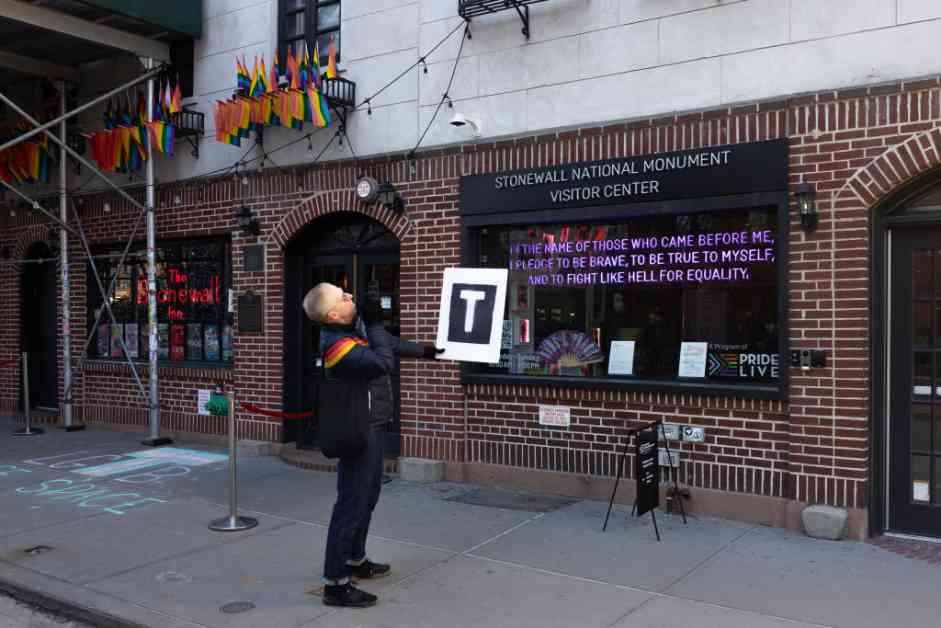In a recent controversial move, the National Park Service (NPS) has sparked outrage by removing all references to transgender activists from the Stonewall Monument webpage. The Stonewall Uprising, a pivotal event in LGBTQ+ history, was led by queer and trans activists in 1969 and is widely regarded as the catalyst for the modern gay rights movement.
The NPS has revised its language on the monument’s webpage, replacing “LGBTQ+” with “LGB” or “LGBQ” while omitting any mention of transgender individuals. The exclusion of the word “queer” has also stirred debate within the community. The updated page now reads: “Before the 1960s, almost everything about living openly as a lesbian, gay, bisexual (LGB) person was illegal, but the events at the Stonewall Inn sparked fresh momentum for the LGB civil rights movement!”
Activist Backlash and Historic Context
This move by the NPS comes amid a broader effort by the Trump administration to redefine and erase language surrounding gender identity in public spaces. Recent executive orders have limited legal recognition of gender identity and banned transgender athletes from competing in women’s sports. Defense Secretary Pete Hegseth’s new standards further restrict active transgender troops from accessing certain gender-affirming medical care.
The erasure of transgender activists from the Stonewall Monument has incited protests and criticism from both activists and historians. The monument, located in Manhattan’s Greenwich Village and designated in 2016 by President Obama, holds significant historical value as a symbol of LGBTQ+ resistance and resilience.
In response to the NPS’s changes, activists staged a protest at the monument to condemn the exclusion of transgender individuals from the narrative of the Stonewall Uprising. Marsha P. Johnson and Sylvia Rivera, two transgender activists central to the events at Stonewall, played crucial roles in the fight for LGBTQ+ rights. Rivera, in particular, was instrumental in advocating for legal protections for transgender individuals within the broader LGBTQ+ movement.
Community Outrage and Calls for Recognition
The decision to remove transgender references from the Stonewall Monument has been met with widespread condemnation. The Stonewall Inn and the Stonewall Inn Gives Back Initiative released a joint statement denouncing the NPS’s actions, labeling it a deliberate attempt to marginalize the contributions of transgender individuals to the LGBTQ+ rights movement.
Historians and LGBTQ+ advocates have emphasized the importance of acknowledging the integral role that transgender activists played in the fight for equality. By erasing their presence from the historical record, the NPS risks whitewashing a pivotal moment in LGBTQ+ history and undermining the progress made by transgender individuals in securing rights and protections.
As the debate continues to unfold, it remains crucial to recognize and honor the diverse voices and experiences that have shaped the LGBTQ+ rights movement. Transgender activists like Marsha P. Johnson and Sylvia Rivera paved the way for future generations to live authentically and advocate for equality. Their legacy serves as a reminder of the ongoing struggle for acceptance and inclusion within the broader LGBTQ+ community.
This decision to erase the word ‘transgender’ is a deliberate attempt to marginalize the very people who paved the way for many victories we have achieved as a community.












